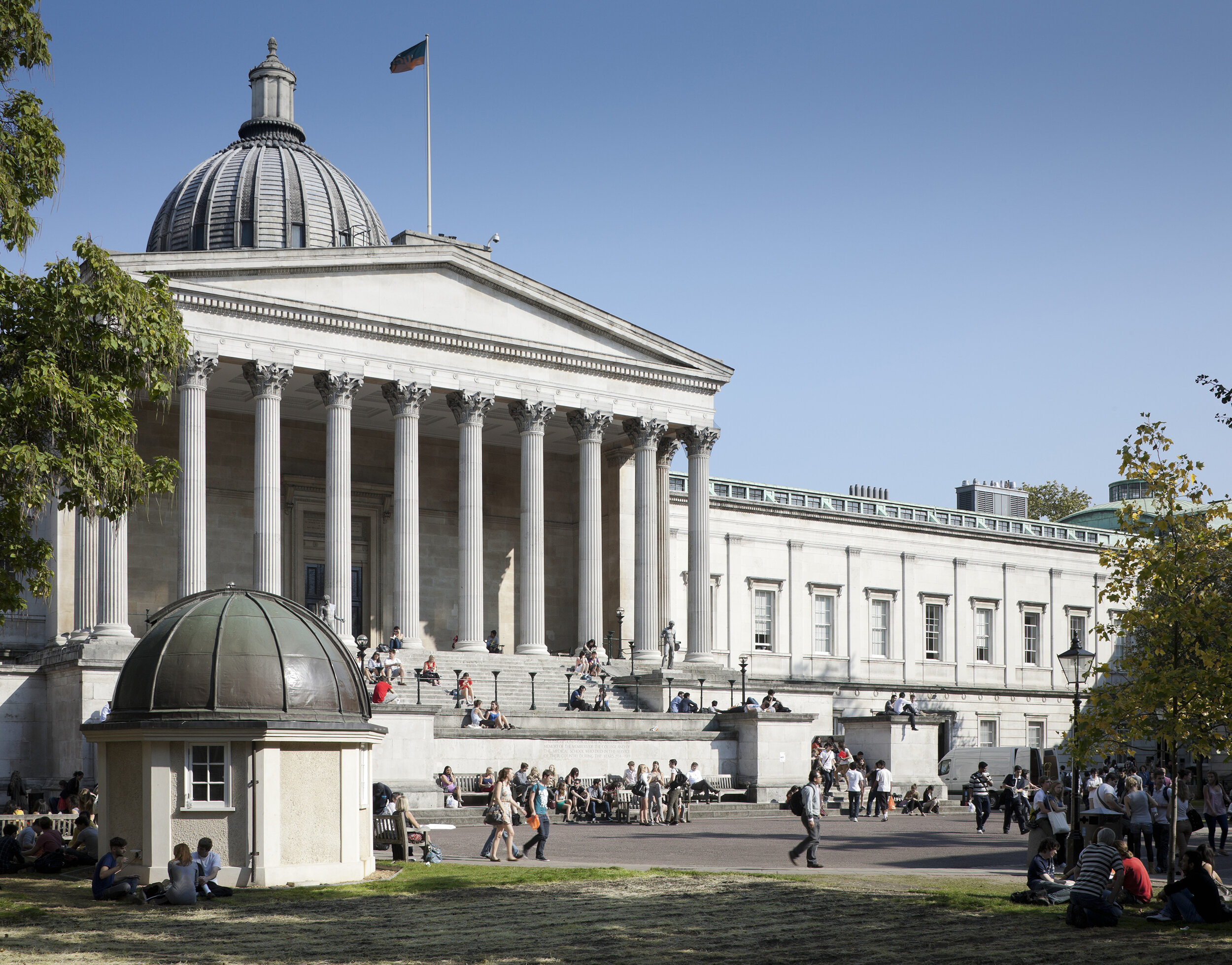UCL ascends in university league tables
UCL now ranked 16th in the world by the Times Higher Education World University Rankings 2021, and moves up eight places in the Guardian's Best UK Universities league table.
Photography by Matt Clayton, UCL Imagestore
Unlike many other UK universities, University College London (UCL) has risen in the rankings of the best universities, both nationally and globally. UCL has climbed eight places, from 22 in 2020 to 14 in 2021, in the Guardian’s Best UK Universities league table.
According to their university guide, their “rankings are designed with students in mind”, and “instead of focusing on academic research…take into account what matters most to young people.” The guide to the ranking explains that universities are assessed on eight different scores, forming a total out of 100 (UCL scored 70.1 out of 100), including feedback from students and the course itself in the annual National Student Survey (NSS).
The Guardian points out to its readership that the tables are compiled by Intelligent Metrix - an independent consultancy that specialises in measuring performance in higher education. The rankings are based on official data collected by the Higher Education Statistics Agency (HESA) and the NSS.
The Guardian normally uses NSS results from the previous year, but thanks to a later publication date of the rankings, they were able to use results from the 2020 survey. This year, the Guardian “averaged the results over the two most recent surveys in all cases where there was consistent data availability.”
According to the Guardian’s statistics, 89 per cent of graduates from UCL find graduate-level jobs or are in further study at professional or higher education level within 15 months of graduation. In comparison, the University of Oxford, ranked the best university in the UK by the Guardian, boasts an impressive 93 per cent of graduates who find themselves employed within the same length of time. Furthermore, 82 per cent of UCL students are satisfied with the quality of teaching on their course, data given by final-year students in the NSS.
The NSS “is the largest survey of student experiences in the country”; more than 70 per cent of final-year students completed the survey in 2019. “Each year thousands of students give feedback on their experiences of higher education” by answering 27 core questions about one of the 407 institutions that are eligible to take part. This feedback is then valued and acted upon by universities and colleges across the UK. The NSS gives students the opportunity to say what they think about their course at their university or college.
UCL was also awarded 16th place in the Times Higher Education World University Rankings 2021. The position is given according to five indicators: the learning environment, research (volume, income and reputation), the influence of research, international outlook, and the university’s ability to help industry.
Thanks to UCL’s Covid-19 research, the university has taken “a prominent role in advancing public knowledge by advising world leaders, collaborating with key partners and providing expert commentary to inform the media.” All of this research and more from other faculties has increased UCL’s position in the national and international rankings.
In the international ranking, UCL is quoted as having 10.8 teachers for every student, and a student body 55 per cent of which is comprised of international students. The University of Cambridge, ranked sixth worldwide, claims that just 38 per cent of its student body resides outside of the UK.
The Quacquarelli Symonds (QS) World University Rankings use six metrics to “effectively capture university performance”: academic reputation, employer reputation, faculty to student ratio, citations per faculty, international faculty ratio and international student ratio. For 2021, UCL ranked as the 10th best university in the world, the only other UK universities within the top 10 being the University of Oxford, University of Cambridge and Imperial College London.
Ben Sowter, Director of Research at QS, said in an interview with the Evening Standard that “London remains one of the world’s leading higher education ecosystems. It is built on highly international faculty and student bodies, nurtures graduates that are coveted by employers and produces over 40,000 academic papers a year across its universities”.
Sowter also indicates that researchers found that London-based universities are often characterised by the high levels of international students, commenting that the London School of Economics, Imperial College London and UCL are “among the 20 universities with the most international student bodies.”
Dr. Michelle Morgan, an independent consultant with expertise in student transitions and experience, says that “one concern arising from Covid-19 is that enrolments across all domiciled groups could dramatically decline in 2020.” With the confusion over A-Level results this year, universities across the world are keen to market themselves well, attracting students who may have had better results than expected.
League tables can act as an aid to prospective students, helping them decide on where to spend their time and money, and these figures will no doubt be attractive to future UCL students.

